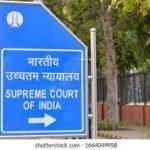The incident, an acid attack on the “Respondent-Victim” (PW-4), occurred on 08.06.2014, at about 11:30 p.m., near the Govind Nagar railway crossing in Mathura, Uttar Pradesh.
An FIR (No. 130 of 2014, Crime No. 228 of 2014) was registered based on the victim’s husband’s complaint.
The Trial Court convicted all three accused (Hakim, Umesh, and Gyani – Accused No.3) under Section 326A read with Section 34 of the IPC.
Hakim and Umesh were initially sentenced to rigorous imprisonment for life and a fine of INR 1,00,00014. Gyani received 10 years’ rigorous imprisonment.
The High Court upheld the convictions for Accused No.1 and Accused No.2, and reduced Accused No.3’s sentence to 10 years.
The High Court also directed that the Respondent-Victim be compensated with at least INR 5,00,000 under the Uttar Pradesh Victim Compensation Scheme, 2014.
A Transfer Petition (Criminal) No. 176 of 2015 had previously transferred the trial to Delhi.
Law Involved
Section 326A of the Indian Penal Code, 1860 (IPC): Voluntarily causing grievous hurt by use of acid, which was the primary charge.
Section 34 IPC: Common intention, applied to the offence.
Section 173 CrPC: Completion of investigation and filing of final report.
Section 313 CrPC: Examination of the accused.
Article 136 of the Constitution of India: Pertaining to the Supreme Court’s power to grant special leave to appeal.
Principles of Appellate Interference: The Court relied on established jurisprudence from cases like Mst Dalbir Kaur and Others v. State of Punjab, Pritam Singh v. State, Bharwada Bhoginbhai Hirjibhai v. State of Gujarat, and Murugan v. State of Tamil Nadu, which outline the limited grounds for interfering with concurrent findings of conviction by lower courts (e.g., perversity, irrationality, legal error, or grave injustice).
Reasoning
The Court noted that the High Court had affirmed the findings of conviction based on the guilt being proven beyond reasonable doubt and duly supported by evidence5.
The Supreme Court reiterated that it will not interfere with concurrent findings of conviction unless exceptional circumstances exist, such as findings based solely on evidence appreciation, legal/procedural error, misreading, clear contradiction between evidence, or findings being perverse or based on no evidence.
The appellants argued that the prosecution failed to prove the ingredients of Section 326A, specifically that no acid or chemical was poured. They also contended that there was no eye injury claimed in the FIR or medical records.
The Court found that medical evidence substantiated serious chemical burn injuries, including 90% loss of vision and deformity to the face and skin. It was confirmed that a chemical was poured on the victim.
Appellants also pointed to a delay in recording witness statements and alleged non-compliance with Standard Operating Procedures for acid attack cases. The Court found the delay explained and noted that procedural non-compliance is not mandatory if the prosecution successfully proves its case.
For Accused No.1 (Hakim), it was pleaded that he was over 70 years old (73 at the time of the judgment) and suffering from multiple ailments, making it improbable for him to have committed the act.
For Accused No.2 (Umesh), his profession as an advocate was considered, implying a duty to the court.
The Court concluded that the concurrent findings of guilt for Accused No.1 and 2 were well-founded in law and facts, leaving no scope for interference with the conviction.
Holding
The Supreme Court partially allowed Criminal Appeal No. 5304 of 2024 (filed by Hakim, Accused No.1) .
It dismissed Criminal Appeal No. 5303 of 2024 (filed by Umesh, Accused No.2) .
The conviction of both Hakim and Umesh was upheld .
For Hakim (Accused No.1), considering his advanced age (73 years), his status as a retired army personnel, and multiple ailments, his sentence was reduced from life imprisonment to rigorous imprisonment for 10 years. The fine of INR 1,00,000 remains .
For Umesh (Accused No.2), the sentence of rigorous imprisonment for life and a fine of INR 1,00,000 was confirmed, as the Court found no reason to interfere .
Hakim V. State Of Nct Of Delhi And Another
Supreme Court: 2025 INSC 728: (DoJ 19-05-2025)






